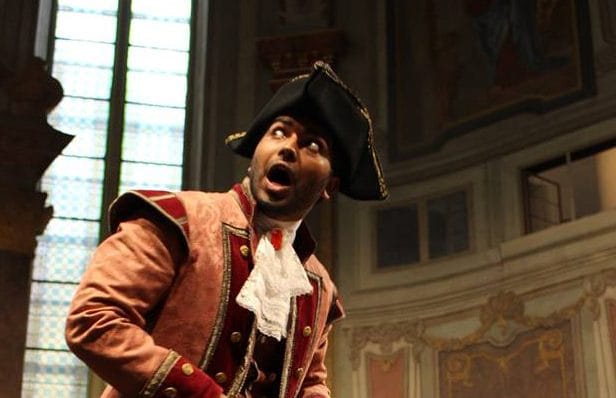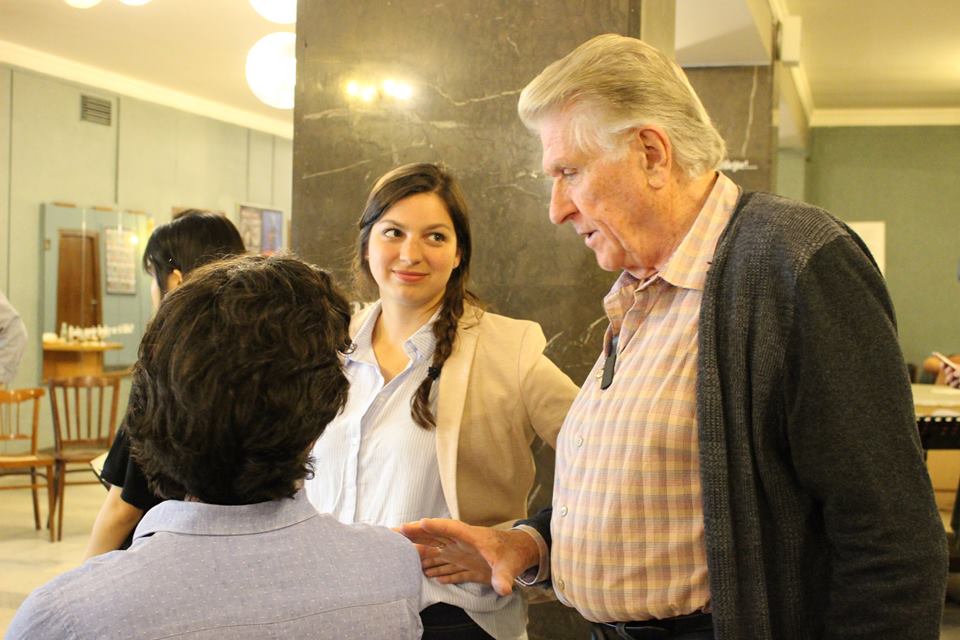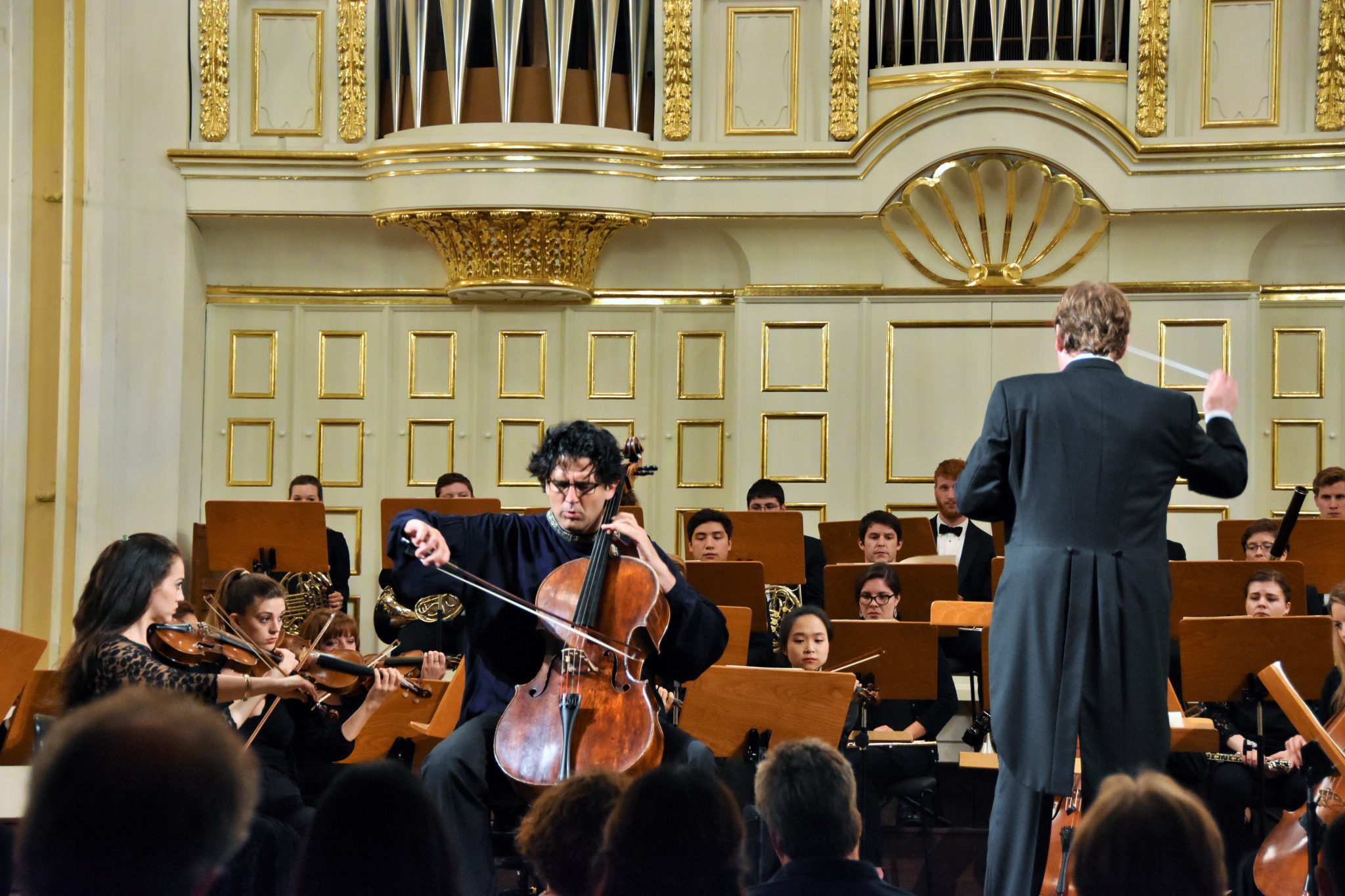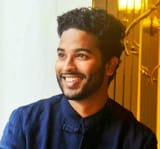Prague Summer Nights and Me

In the summer of 2017, I had the uniquely rewarding experience of attending the Prague Summer Nights: Young Artists Music Festival (PSN). Produced by Classical Movements—the premier concert tour company for the world’s great orchestras and choirs—Prague Summer Nights is an intense, immersive 30-day performance/educational program for singers, instrumentalists, conductors, coaches, directors and arts administrators.
Having auditioned earlier in the year for this third edition of PSN, I had the life-changing opportunity to perform in some of Europe’s most gorgeous and historic venues, such as the Mozarteum in Salzburg and the church of St. Simon & Jude in Prague, where I performed as “Bartolo” in fully-staged productions of Mozart’s Le Nozze di Figaro. In addition to my on-stage role, I participated in the Prague Summer Nights opera scenes program at Lichtenstein Palace, an art song recital at Divadlo Oskara Nedbala Tábor and even a cabaret concert at the legendary Reduta Jazz Club.
When I first started singing opera, I remember Jasmin Martorell, my voice coach at the
Neemrana Music Foundation, telling me that my voice reminded him of his favourite baritone, Sherrill Milnes. For a kid who grew up listening to funk and soul, who didn’t know much about classical music, that kind of encouragement meant a lot to me. Mr. Milnes became my introduction to opera; listening to so many of his fabulous recordings at New York City’s iconic Metropolitan Opera was how I began to understand what an operatic baritone actually sounds like.
So, when my voice teacher sent me the gorgeous promotional poster for Classical Movements’ 2017 Prague Summer Nights Festival, I was delighted to discover that Mr. Milnes and his wife, Maria Zouves, had been tapped as stage directors for Le nozze di Figaro. Naturally, Mr. Martorell was very excited at the prospect of me, his student, honing my craft with Mr. Milnes and Mrs. Zouves for an entire month in the heart of Europe. Luckily for the both of us, through the generosity of Classical Movements and the Neemrana Foundation, our shared dream became a reality.
PSN 2017 kicked-off in the charming Bohemian town of Tábor, Czech Republic, where we held the lion’s share of rehearsals for Mozart’s two operas. My busy summer days were occupied with general staging preparation, private voice lessons and ensemble coaching, as well as group classes in Italian and German diction and musical and dramatic interpretation—all taught by Prague Summer Nights’ highly-esteemed faculty from some of the world’s best universities, conservatories and opera houses. The level of instruction I received was immense and varied, ranging from highly technical aspects of performance to the purely practical.

One particular pro tip I’ll never forget was imparted to me by my idol, Sherrill Milnes:
“Edwin,” he said, “if you ever need to eat anything as part of the staging of an opera, make it a banana—easy to swallow, and not really a choking hazard.”
I found his advice funny, yet pragmatic. No other teacher would tell you something like that and only a seasoned performer such as Mr. Milnes could even think of it.
Our stay in Bohemia ended with our well-attended and well-received art song recital, and from there, all 90 singers, instrumentalists and staff trekked north to Prague proper, where our days (and nights) were even more jam-packed! We continued to refine the work we had been doing in Tábor, while making time for costume fittings, masterclasses and our first “Sitzprobe,” the German term used to describe the first seated rehearsal between singers and orchestra.
Singing alongside a full, finely-tuned orchestra really is an incomparable feeling. As an operatic vocalist, you finally get to hear these arias you’ve been studying as the composer originally intended them to be: strings, winds, brass, percussion and your voice. It’s more than a little nerve-wracking, of course, knowing that you’re making music with so many other talented artists, and just the smallest mistake might throw off all of them.
Yes, PSN 2017 played host to some truly fantastic orchestral musicians. Together, they formed the Prague Summer Nights Festival Orchestra, and under the baton of PSN Artistic Director John Nardolillo, performed several symphonic and chamber music performances of major repertoire (including a sold-out concert at the Rudolfinum, home of the Czech Philharmonic), while also ably serving as the pit orchestra for every performance of both Le Nozze di Figaro and Die Zauberflöte. For us singers, Maestro Nardolillo was wonderful to work with, making every effort to talk to one about their arias and discuss how they’d like to perform them with the PSN Festival Orchestra.
I should note, too, that my instrumental colleagues also received masterclasses from top clinicians, including world-class clarinetist Walter Seyfarth (a member of the Berliner Philharmoniker since 1985) and the internationally celebrated cellist Amit Peled (performing on a 285-year-old instrument that belonged to Pablo Casals), as well as private lessons from faculty of the Prague Conservatory (where no less a name than Dvořák served as head of the composition department).

Of all the concerts, classes and camaraderie we shared in Prague, for me, the highlights were our opera productions inside the grand church of St. Simon & Jude. With expert staging, period costumes and super title projections that would not be out of place in a professional opera house, as Operawire critic Francisco Salazar duly noted in his headline review, PSN’s “solid cast” made for quite “an enjoyable evening of Mozart.”
Speaking of Mozart, post-Prague, we then headed south to Austria for PSN’s debut in Salzburg, the birthplace of Wolfgang Amadeus Mozart, himself. The last remaining days of PSN were spent re-working our well-traveled productions of Figaro and Flute for the ambience and splendour of the Mozarteum’s Großer Saal. I have to say, performing Mozart’s timeless music in his hometown at an institution dedicated to his legacy is a bucket list item for any classical musician, so it only felt right that the 2017 Prague Summer Nights: Young Artists Music Festival would go out on this highest possible note.
Overall, Prague Summer Nights proved to be a most treasured opportunity for me. Spending more than a month travelling to three beautiful European cities, performing multiple concerts of classic repertoire at storied venues, learning from skilled faculty and experienced colleagues alike in a truly collaborative atmosphere—PSN double-checked every last box in terms of what an emerging artist such as myself would want from such a program. Without any doubt, I can wholeheartedly recommend Classical Movements’ Prague Summer Nights: Young Artists Music Festival to all singers and instrumentalists, conductors and coaches, directors and administrators.





